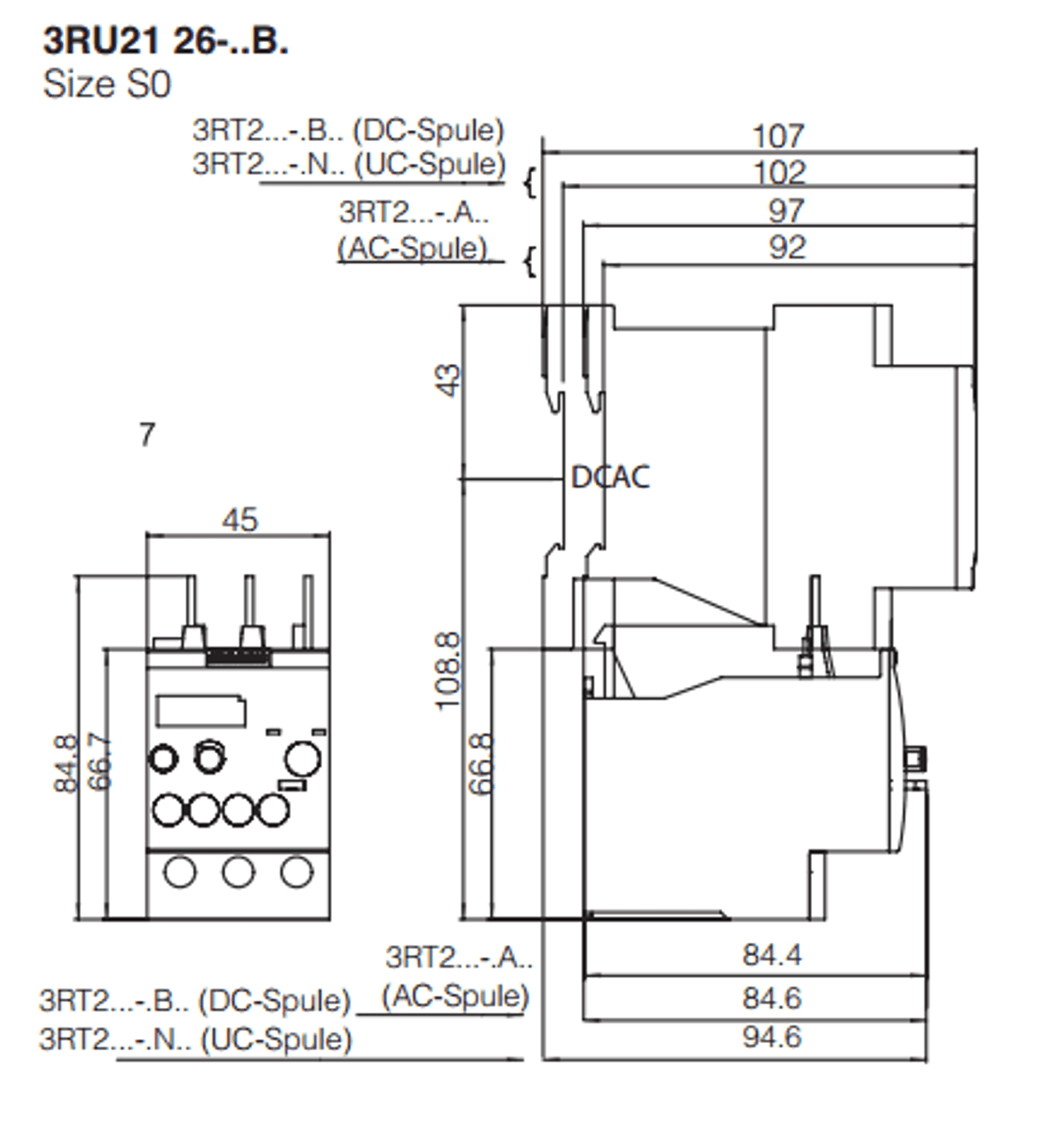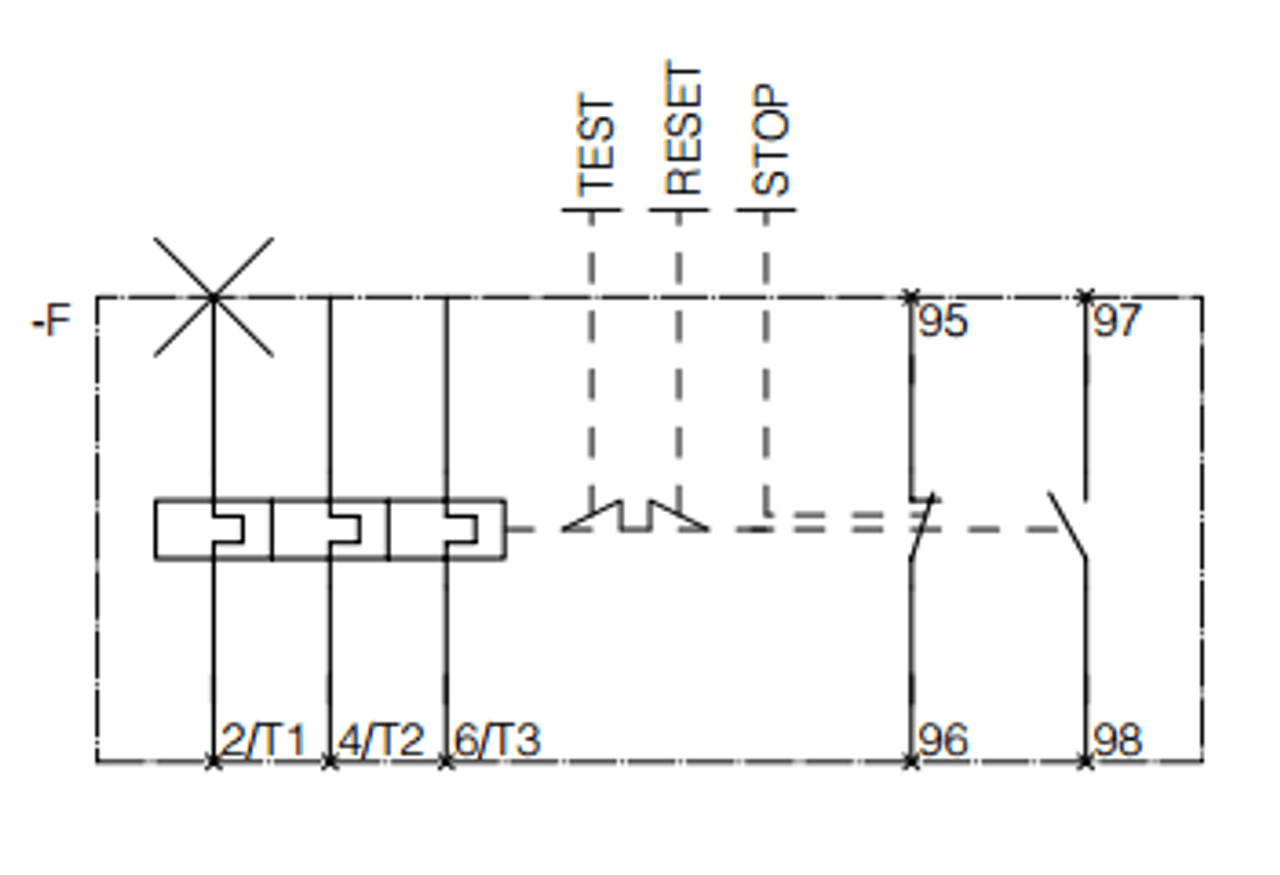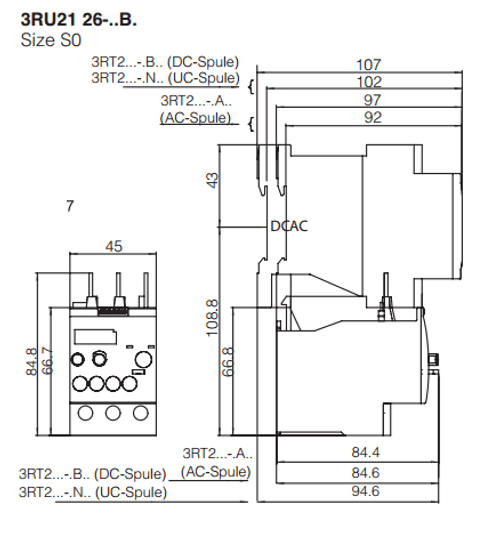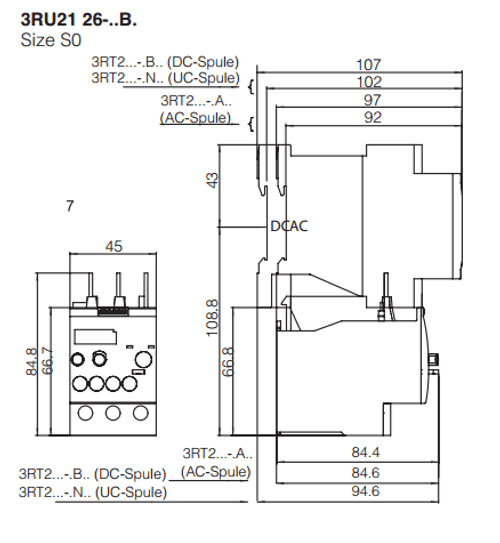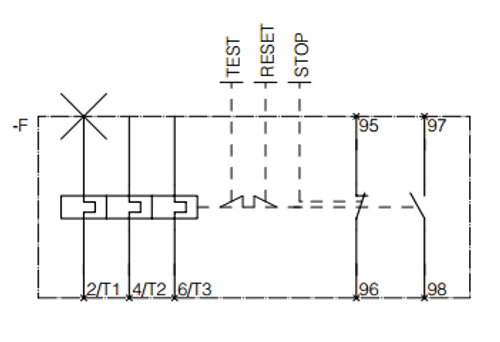Product Description
The Siemens 3RU2126-4NB0 overload relay is adjustable from 23 to 28 AMPS, has a manual or automatic reset option and mounts to any 3RT2 size 0 contactor from 9 to 38 AMPS. This UL rated thermal overload relay comes with phase loss sensitivity, screw terminals and class 10 tripping which cuts power to the coil in 10 seconds or less in an over current condition. For a higher AMP range than the 3RU2126-4NB0, Siemens offers the 3RU2126-4EB0, which is adjustable up to 32 AMPS.
| AMP Range | 23 to 28 AMPS |
| Reset | Manual or Automatic |
| Phase loss protection | Yes |
| Trip Class | 10 (10 seconds or less) |
| Mounts to: |
3RT2026, 3RT2027, 3RT2028 |
The 3RU2126 thermal overload relays up to 100 A are designed for current-dependent protection of applications with normal start-up conditions against impermissibly high rises in temperature as a result of overload or phase failure. An overload or phase failure causes the motor current to rise above the set rated motor current. This current rise heats up the bimetal strips within the relay via heating elements which, in turn, operate the auxiliary contacts via a tripping mechanism due to their deflection. These switch the load off via a contactor. The switch-off time is dependent on the ratio of tripping current to operational current Ie and is stored in the form of a tripping characteristic with long-term stability.
The "Tripping" state is signaled by means of a switching position indicator. Resetting takes place manually or automatically after a recovery time has elapsed.
The 3RU thermal overload relays are electrically and mechanically optimized to the 3RT contactors such that, in addition to individual mounting, they can also be directly mounted onto the contactors to save space. The main and auxiliary circuits can be connected in various ways, including the use of Cage Clamp terminals. When the overload relay has been connected, it can be tested for correct functioning using a TEST slide. In addition to the TEST function, the 3RU thermal overload relay is equipped with a STOP function.


